Filter by
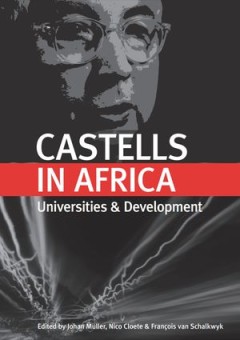
Castells in Africa : Universities and Development
Castells in Africa: Universities and Development collects the papers produced by Manuel Castells on his visits to South Africa, and publishes them in a single volume for the first time. The book also publishes a series of empirically-based papers which together display the multi-faceted and far-sighted scope of his theoretical framework, and its fecundity for fine-grained, detailed empirical in…
- Edition
- -
- ISBN/ISSN
- 9781920677930
- Collation
- -
- Series Title
- -
- Call Number
- 370 MUL c
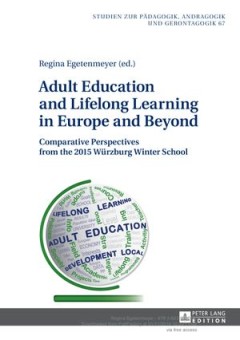
Adult Education and Lifelong Learning in Europe and Beyond : Comparative Pers…
This volume presents comparisons of adult education and lifelong learning with a focus on educational policies, professionalization in adult education, participation in adult learning and education, quality in adult education, and educational guidance and counselling. The essays are based on comparisons discussed at the international Winter School «Comparative Studies in Adult and Lifelong Lea…
- Edition
- -
- ISBN/ISSN
- 9783653951004
- Collation
- -
- Series Title
- -
- Call Number
- 370 ADU
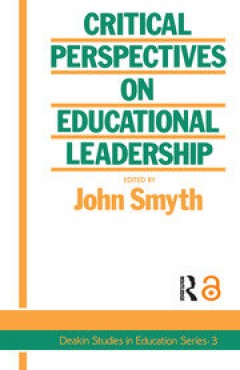
Critical Perspectives On Educational Leadership
This book is an edited collection of original papers which challenge in a very direct manner the dominant behviourist and functionalist views that have come to entrap those who live, work and conduct research in the areas of educational leadership, and focusing instead on the structures and processes within schools as organisations that frustrate, distort and ultimately stifle educative relatio…
- Edition
- -
- ISBN/ISSN
- 9780203977927
- Collation
- -
- Series Title
- -
- Call Number
- 370 CRI
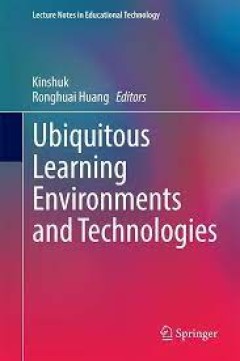
Ubiquitous Learning Environments and Technologies
This book focuses on the design and architecture of ubiquitous learning environments, associated technologies, various learning scenarios supported by these environments, and different contexts that arise in environments where the seamless immersion of formal and informal activities and interactions has the potential to contribute to the learning process. With particular focus on adaptivity for…
- Edition
- -
- ISBN/ISSN
- 978-3-662-44659-1
- Collation
- -
- Series Title
- -
- Call Number
- -
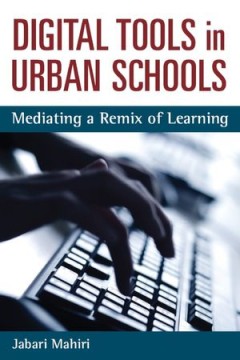
Digital Tools in Urban Schools : Mediating a Remix of Learning
The digital age and the age of hip-hop emerged collaterally during the last 35 years. Increasingly, young people in the United States and globally use screen-based, digital technologies to source and transmit words, images, video, and sounds as they engage in meaning making, identity connections, and social networking. They come to school with experiences, interests, affinities, and skills uniq…
- Edition
- -
- ISBN/ISSN
- 9780472900305
- Collation
- 170 halaman
- Series Title
- -
- Call Number
- 370 MAH d
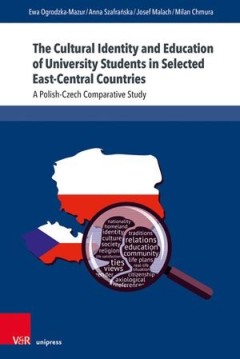
The Cultural Identity and Education of University Students in Selected East-C…
In Polish and Czech pedagogy, there have not been many studies on the social, cultural and educational functioning of academic youth in a culturally diversified environment. The analysis of identity behaviours presented by university students from the Polish-Czech borderland and of their learning potentialities will provide a chance for mutual recognition, understanding and the enrichment of bo…
- Edition
- -
- ISBN/ISSN
- 9780000000773
- Collation
- 238 halaman
- Series Title
- -
- Call Number
- 370 OGR c
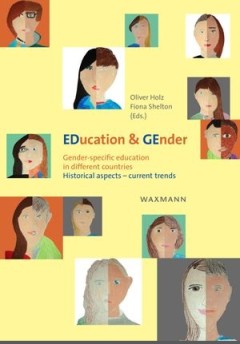
EDucation & GEnder : Gender-specific education in different countries. Histor…
A study funded by the European Commission, relating to gender specific differences in learning achievements, shows among other things that whilst gender equality is a hot topic in many countries a general equality policy is not always advocated. More importantly, measures to reduce gender differences in achievement seem to focus primarily on the underachievement of boys.
- Edition
- -
- ISBN/ISSN
- 9783830928683
- Collation
- -
- Series Title
- -
- Call Number
- 370 HOL e
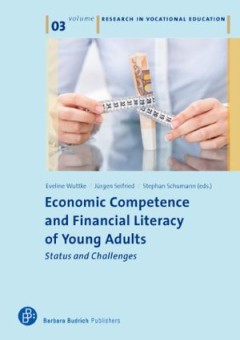
Economic Competence and Financial Literacy of Young Adults : Status and Chall…
The authors take a detailed look at the economic competence and financial literacy of young adults, especially of those who start an apprenticeship or who take up their studies at a university. Economic competence and financial literacy are of special interest within this group, because these young people are – mostly for the fi rst time in their lives – responsible for autonomously managin…
- Edition
- Eveline Wuttke, Jürgen Seifried, Stephan Schumann
- ISBN/ISSN
- 9783847402831
- Collation
- 235 halaman
- Series Title
- Research in Vocational Education volume 3
- Call Number
- 330 WUT e
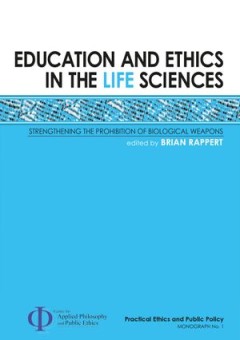
Education and Ethics in the Life Sciences : Strengthening the Prohibition of …
At the start of the twenty-first century, warnings have been raised in some quarters about how – by intent or by mishap – advances in biotechnology and related fields could aid the spread of disease. Science academics, medical organisations, governments, security analysts, and others are among those that have sought to raise concern. Education and Ethics in the Life Sciences examines a vari…
- Edition
- -
- ISBN/ISSN
- 9781921666391
- Collation
- -
- Series Title
- Practical Ethics and Public Policy
- Call Number
- 370 RAP e
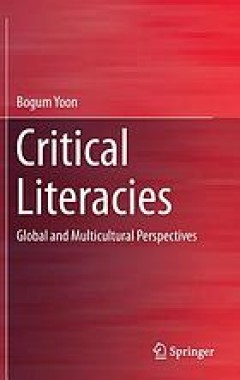
Critical Literacies Global and Multicultural Perspectives
This book offers comprehensive coverage of critical literacies by pursuing a balanced approach to theory, research, and practice. By clarifying the gaps among the frameworks of critical literacies, the author discusses new ways of approaching them from global and multicultural perspectives and provides an instructional model of critical global literacies that draws on her own experience and an …
- Edition
- 1
- ISBN/ISSN
- 9789812879431
- Collation
- xvii, 178, E2 pages
- Series Title
- -
- Call Number
- 370
 Computer Science, Information & General Works
Computer Science, Information & General Works  Philosophy & Psychology
Philosophy & Psychology  Religion
Religion  Social Sciences
Social Sciences  Language
Language  Pure Science
Pure Science  Applied Sciences
Applied Sciences  Art & Recreation
Art & Recreation  Literature
Literature  History & Geography
History & Geography